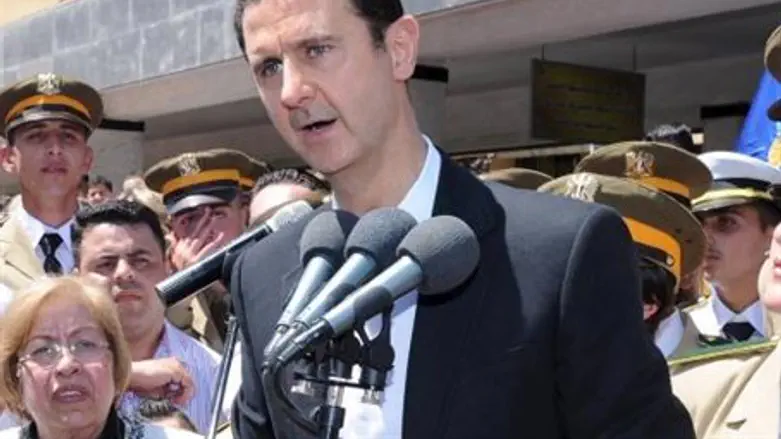
Syria's parliament on Tuesday approved a deal with Iran under which Tehran will provide the government a new line of credit worth $1 billion, state media said.
The credit line will be the third that Tehran has extended to Damascus since the conflict in Syria erupted with anti-government protests in March 2011.
"The People's Council today approved a deal on a line of credit of $1 billion," which was signed on May 19 in Damascus by Syria's Commercial Bank and the Export Development Bank of Iran, the official SANA news agency said. It said the credit would be used for "importing merchandise and carrying out projects," without giving further details.
Iran's ability to provide a bailout would seem to back up experts who have warned that the current sanctions regime against Iran's nuclear program has not been tough enough to provide a deterrent to Iran, the leading state sponsor of terrorism.
In 2014 Iran saw a 3% growth in its GDP, and just last Monday Iranian officials announced that 13 tons of gold had been repatriated as part of sanctions relief, bringing the total in unfrozen assets since the November 2013 interim deal was signed to just under $12 billion.
Iran has been propping up President Bashar al-Assad's regime, and has provided him with military and financial support through Syria's conflict.
Experts have revealed Iran is spending $35 billion a year propping up Assad, and is likewise deploying thousands of its troops in the country. Several top Iranian generals have been killed fighting to keep Assad in power and defend Iran's regional influence.
In 2013, Tehran extended Damascus two lines of credit worth a total of $4.6 billion, with much of that devoted to the purchase of oil.
After more than four years of conflict that has left some 230,000 people dead, Syria's government has become increasingly dependent on credit and other aid from allies like Iran.
"It is one of the rare sources of currency that remains for the Syrian government," said Jihad Yazigi, director of the economic news website The Syria Report.
Reportedly Iran is so keen to keep Assad in power so as to maintain a route of access through Syria to the Mediterranean, by which it can supply weapons to Hezbollah and strengthen its growing regional influence.
AFP contributed to this report.